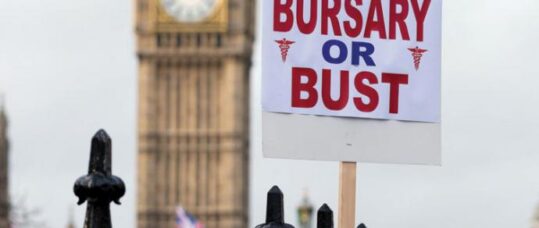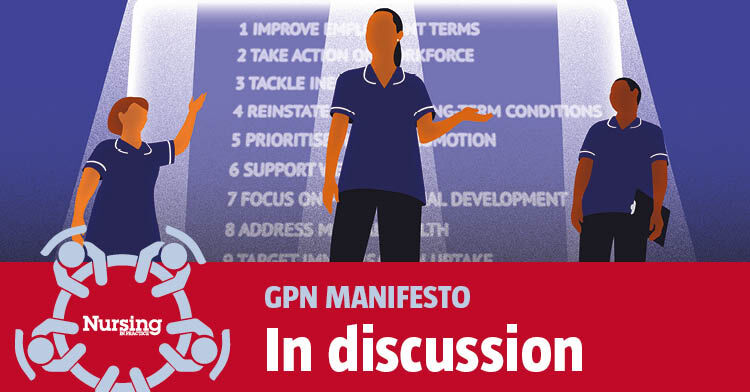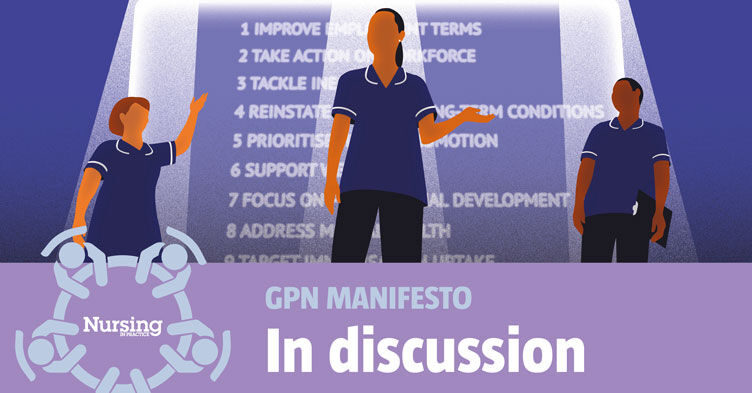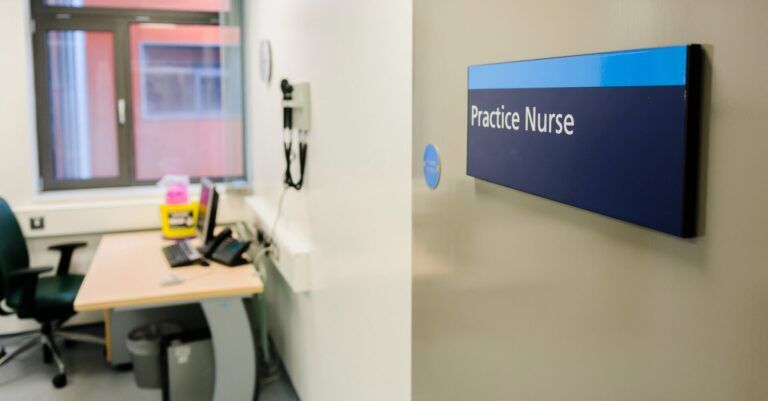The number of students considering a nursing career is falling. According to the Royal College of Nursing (RCN), there are now more nurses leaving than joining the register. RCN figures from last October showed that 1,220 fewer student nurses joined university courses at the start of the 2017/18 academic year. That year was the first in which students did not have access to the NHS bursary, meaning they were saddled with a student loan for their £9,000-per-year nursing degrees.
A Health Foundation report last October indicated that nursing, midwifery and allied healthcare professional degrees were all hit by the abolition of the NHS bursary, seeing a 23% fall in applicants. Bursaries were dropped for all students in England, yet were retained for those in Scotland, Wales and Northern Ireland. Subsequently,
in England there was an overall fall in applicants, with mature-student numbers being hit the hardest. So with a second academic year of fee-paying nursing degrees approaching, what do those currently studying and working in the profession think of the changes?
A passion greater than finance
Ella Towers works as a nurse in London, having trained in the capital. She benefited from an NHS bursary and had worked as a healthcare assistant before starting her degree. ‘At this point we need any incentive possible to get people training to be nurses, due to the chronic shortage,’ she says. According to the RCN, there are almost 40,000 nursing vacancies in England, with little sign of filling those positions in the near future. Early indications show that course fees will cause the application decrease to continue.
Despite having a bursary, Ms Towers doesn’t think her decision to study nursing would have changed if she had to pay for the course. ‘I would have done nursing with the £9,000 fees, because I think it should definitely be comparable with other degrees you have to pay for. Many people worked really hard for nursing to be recognised as the profession it is, having it as a degree standardises the knowledge required to be a nurse and hopefully means all nurses are trained to some kind of standard.’
Tobye Smith, a student nurse in his final year at the University of Hertfordshire, began his degree after working as a supermarket customer service supervisor. Coming from a low-income background, Mr Smith believes that his bursary gave him some financial stability while studying full-time for three years. ‘Without it, I simply could not have sustained myself,’ he says. ‘The bursary rarely provides complete financial cover for all outgoings, but it certainly helps provide a reliable safety net.’
Without the NHS paying for his tuition fees, he admits that he wouldn’t have started his nursing career path when he did. ‘I was 19 when I started the course in September 2015. I had worked for a year building up a comfortable savings amount, but this wasn’t a sufficient timeframe to build up a larger sum to contribute to my study costs.’
That being said, Mr Smith argues that his passion for the profession wouldn’t have been hampered by tuition fees: ‘Nursing has been a massive passion for me, so I would definitely start a course later in life, if it was fee paying.’
Fellow nursing student David Gwinnell agrees. ‘I would have still done my nursing degree even if I had to pay for it,’ he says. ‘However, it would have meant that I wouldn’t have been able to do my studies when I did, for fear of how much I could afford.’ A student at Sheffield Hallam University, Mr Gwinnell enrolled on his degree course after nine years of working in healthcare. ‘Knowing that there was a bursary and that course fees were not going to lumber me with thousands of pounds of debt allowed me to make the choice to do my degree more easily.’
No more ‘free degrees’
Both Ms Towers and Mr Smith believe that the bursary system had its faults. ‘I suppose there was the risk that people were doing nursing with no intention of working in healthcare, just because it was free, and at a cost to the NHS,’ says Ms Towers. Mr Smith echoes these thoughts, saying that those who take advantage of the so-called ‘free degree’ should be forced to repay the cost to the NHS.
Mr Gwinnell thinks that a system where students need to invest in their education financially would filter out any candidates who were unwilling to join the nursing profession after graduation. ‘There would be an emphasis on the right people doing their training, as they are putting themselves in debt to join the profession,’ he says. He also argues that fee-paying courses may have longer-term benefits such as ‘potentially improving retention rates within qualified nurses.’
Beyond attracting students who had no intention of working as nurses after graduation, Mr Smith remarks that the previous system may have also been abused further.
‘I have seen examples where people have been in receipt of a bursary, and have used various loopholes to get a higher award rate,’ he says. ‘I feel that a firmer and stricter means-testing system would need to be implemented.’
But he still believes that scrapping the bursary was the wrong decision for the nursing profession. ‘Removing the bursary was done with little consideration of the facts or understanding of the system, and now we can see the figures for ourselves.’
Just like other university students?
For those outside the nursing profession, the switch to fee-paying nursing degrees may not seem like such a drastic decision. Fellow university graduates have been subjected to £9,000-per-year degree courses for a few years now, but that fails to take into account the number of clinical hours that pre-registration nursing students are required to undertake for free alongside their studies.
‘A lot of students I’ve worked with who are paying fees have said they feel like they have to pay to work,’ says Ms Towers. Pre-registration nursing students are required to complete 2,300 hours of clinical practice to join the NMC register. The demanding hours spent in clinical practice, coupled with academic assessments, may discourage students from becoming nurses.
Ms Towers also agrees with the latest Health Foundation report, which indicated that mature students, who are well-represented on nursing degree courses, are being
hit the hardest by paying fees. ‘It may mean people who are doing nursing later in life now won’t do it due to the added debt.’
But Mr Gwinnell does not seem as concerned about the debt. ‘The rate that student loans are paid off may not actively or severely affect those paying them back,’ he argues. University tuition fee repayments are sometimes branded a ‘student tax’ as they are automatically deducted from a graduate’s wages.
The Government recently announced that the repayment threshold would be raised to £25,000. For graduate nurses, this would include the majority of newly-qualified nurses, with the exception of those working under the added London salary weighting.
Filling the gaps
The current plans to fill the gaps in the nursing workforce have also raised concerns in the profession. Current registrations indicate there won’t be enough newly-qualified and overseas nurses to adequately staff the NHS. Government initiatives to tackle this, such as nursing associates, remain controversial. Nursing became a degree-only profession in 2013, but some argue that an apprenticeship route into nursing would threaten the importance of registered nurses with academic qualifications, even though it would be a less costly route into the profession.
‘I would worry about any move towards apprenticeship routes to nursing,’ says Ms Towers. ‘I believe an academic and evidence-based approach is really important for patient safety and outcomes.’ Some have also proposed paying student nurses the minimum wage during their clinical hours, yet would this change the supernumerary role of student nurses within the multidisciplinary team? ‘It’s important for students to be supernumerary so they can make the most of all learning opportunities.’
Mr Gwinnell is undecided about how the move to a fee-paying system will impact male students thinking of joining the profession. As chairman of Men in Nursing Together (MINT), a group to support and encourage men in nursing, he often hears wider discussions about recruitment and retention within the nursing workforce. ‘From debates that have occurred on the MINT network, there has been a clear divide in what people have experienced with a bursary and with student loans, so I am unsure on the outcome.’
Financial incentives to encourage people into the profession are not always well-received. Last year Coventry University attempted to encourage male applicants into the profession by offering them £3,000 bursaries, despite the NHS bursary being scrapped. Male NMC registrants currently make up just over 10% of the register, prompting certain institutions to look at how they can attract male candidates onto their courses.
But the Coventry scheme was met with some controversy, and has not been rolled out as a national incentive for male applicants. Other recent perks to
joining a nursing degree include free tickets to Glastonbury music festival. The innovative idea was announced by the festival’s founder, Michael Evans, who hopes to encourage more students overall to train in his local area of Somerset.
While the current shift to fee-paying nursing degrees is only a year old, it is clear that there are many within the nursing profession who share concerns about how it will impact nursing. All three students who spoke to us seem adamant that the NHS bursary benefited them greatly during their training. Their passion for nursing is clear, yet they all agree that the new fee-paying system would have delayed their start in the profession.
The scrapping of the NHS bursary has hit the nursing profession hard. A further drop in student numbers, especially among mature students, has sparked fresh fears about patient care and morale among nurses. The RCN continues to advocate for Government action to help reduce the decline in student numbers, but it remains to be seen how it will respond.







